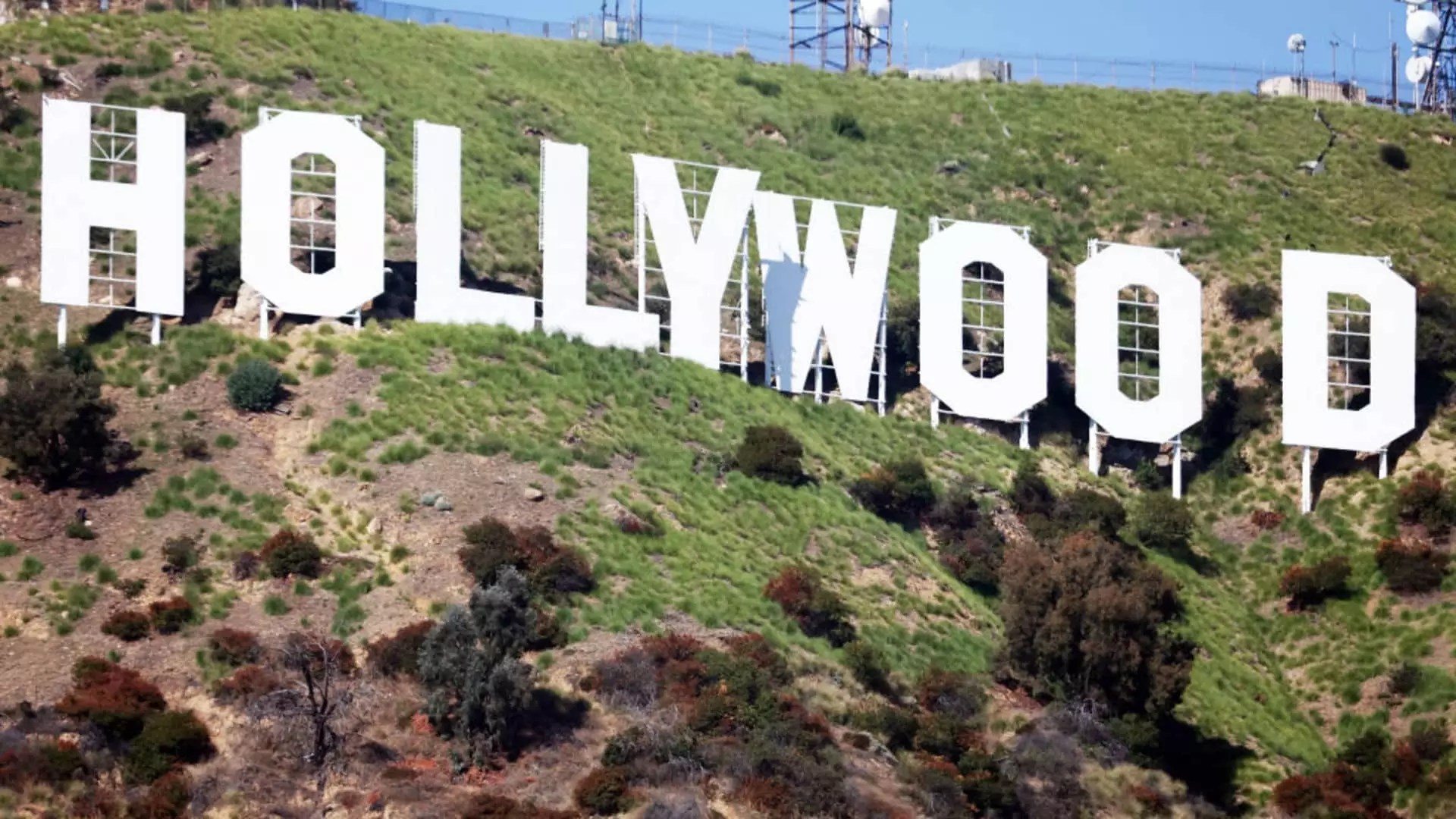When President Trump’s dramatic declaration to impose a staggering 100% tariff on movies produced overseas emerged, it sent shockwaves through Hollywood’s intricate web of entertainment capitalism. Investors blinked—common sense seemed to vacate the industry. Shares of major players like Netflix, Disney, and Warner Bros. Discovery took a dive, revealing that the artificial inflation of a market can be as disturbing as any economic downturn. This proposal, if realized, could send Hollywood into a tailspin, severely hindering the very creativity it claims to champion.
A Misguided Sense of National Security
Trump labeled tax incentives extended by foreign nations as a “national security threat,” an assertion as baffling as it is concerning. In a bid to protect American interests, Trump’s administration could be unwittingly crippling one of its most vibrant industries. If movies serve as a soft power tool, reflecting American culture globally, does it not seem counterintuitive to stifle the very channels that disseminate this culture? The question arises: at what point do we confuse misguided patriotism with economic self-harm? This approach not only cripples filmmakers, who often rely on international settings for their narratives, but it also isolates a culture that thrives on diverse perspectives and experiences.
The Complexity of Modern Production
The modern movie-making process is deeply interwoven with global frameworks. Many films are filmed in a multitude of locations around the globe for logistical advantages or tax incentives, making it nearly impossible to draw clear lines. The notion that a digital product could incite tariffs is not only archaic but also misses the intricacies of today’s film industry. From filming in picturesque locales to utilizing international talent, the entire production schema is an ode to globalization—attempting to curtail such practices through taxes is reminiscent of a misguided return to isolationism.
The Economic Fallout
What’s especially troubling is the potential economic fallout from this proposal. Picture this: studios, already precariously balancing gigantic budgets, could face a severe drop in revenues as international co-productions dwindle. Since Hollywood has become exceedingly reliant on foreign box office sales—especially from markets like China—this looming tariff could result in other countries closing ranks against American productions as retaliation. Furthermore, the longer these talks linger, the more uncertainty envelops investors, leading to volatility in stock prices that could extend beyond just opening bell fears.
The Irreversible Damage to Global Partnerships
Finally, the broader implications on international relationships cannot be overlooked. Hollywood’s relationships with other nations are often reinforced through cultural exchanges and co-productions, but this aggressive tariff proposal could incite retaliatory actions that jeopardize crucial partnerships. If countries pull back from collaborating with American filmmakers, the industry could find itself starved of fresh narratives and innovative ideas.
In a world increasingly driven by interconnectedness, the proposed 100% tariff isn’t merely an economic strategy; it’s an alarming indicator of a deeper, more troubling shift in how cultural industries are viewed and valued. Let us not allow populism to dictate the trajectory of creativity and economic stability within the entertainment sphere.


Leave a Reply